A Vision for Institutional Renewal
In his recent work "A Time to Build," Yuval Levin argues for the vital importance of institutions in shaping character and fostering social cohesion. While Levin's work primarily focuses on civic institutions, his insights are equally applicable—and perhaps even more crucial—to religious communities like the Anglican Church in North America (ACNA). Levin contends that strong institutions are essential for the health of society, serving as formative structures that help individuals develop virtues, skills, and a sense of shared purpose.
In the context of the ACNA, institutions like Trinity Anglican Seminary play a critical role in preserving and transmitting the rich heritage and biblical heartbeat of Anglicanism. They serve as guardians of tradition, centers of theological reflection, and crucibles for forming future church leaders. Just as Levin argues that civic institutions shape citizens, religious institutions like Trinity shape disciples and leaders who will guide and nurture Christian communities, little embassies of the coming Kingdom of God.
Moreover, in an era of increasing secularization and institutional distrust, Levin's call for renewed focus on institution-building resonates deeply with the ACNA's mission. The ACNA, as a relatively young province, needs strong institutions to solidify its identity, nurture its members, and effectively carry out its mission. Trinity Anglican Seminary, by dedicating itself to the preservation and promotion of classical, orthodox, and evangelical Anglicanism, serves as a keystone institution within the ACNA ecosystem.
By forming leaders steeped in Anglican tradition and equipped for contemporary ministry and mission, Trinity embodies Levin's vision of institutions as formative entities. The leaders formed in Trinity’s programs, in turn, will go on to build and strengthen their own parish communities, creating an ongoing ripple effect of institutional renewal across the Anglican Church in North America and beyond. This process of formation and multiplication is essential for the long-term health and vitality of the ACNA, ensuring that the values, practices, and theological insights of Anglicanism are passed on to future generations.
In essence, Trinity Anglican Seminary is not just an educational institution, but a vital organ in the body of the ACNA, pumping well-formed leaders into the lifeblood of the church. We’ve been doing this work since the mid-1970s, and our influence on the development of the ACNA and the ongoing realignment of the global Anglican community has been profound. By investing in Trinity, we are investing in the future of Anglicanism in North America and beyond, creating the kind of robust, formative institution that Levin argues is essential for the flourishing of any community—especially a faith community seeking to witness faithfully in a rapidly changing world.
Our Strategic Vision
Trinity Anglican Seminary was founded in the mid-1970s to renew The Episcopal Church from within. For more than four decades, our identity and purpose were clear: we were the subversives - an evangelical seminary struggling against the grain in an Anglican province going off the rails.
Today, our mission has evolved. We are no longer working against the grain of an Anglican province drifting from Christian orthodoxy. Instead, Trinity Anglican Seminary is now aligned with the Anglican Church in North America (ACNA) and supports its leadership and mission unequivocally. We are an institutional cornerstone upon which the ACNA and other faithful Anglicans can unify, strengthen, and flourish in ministry and mission.
As we look to the future, we have a strategic plan to remain faithful and to serve our Anglican community effectively. Our strategic plan focuses on four key goals:
Differentiate Trinity through excellence in Anglican Formation
Provide robust Anglican Formation via multiple pathways
Serve the ACNA as no other seminary can
Establish Trinity as a recognized leader in Anglican formation, globally
Goal 1: Excellence in Anglican Formation
Formation at Trinity is grounded in the 2019 Book of Common Prayer and closely attuned to the Anglican Church in North America's formational standards. We are committed to forming Christian leaders out of the world and more deeply into a faith community.
Key objectives include:
Excelling in spiritual and liturgical formation through our chapel program
Providing formation in evangelical Anglican orthodoxy in all programs and courses
Aligning academic programs with ACNA ordination standards
Delivering excellence in practical "training for ministry" while remaining academically rigorous
At the heart of our mission to build a strong institution serving the ACNA is our commitment to excellence in Anglican formation. We recognize that the future of our church depends on leaders who are deeply rooted in Anglican tradition and spirituality. To this end, we have transformed our chapel program and will use it as the foundation for a comprehensive "Prayerbook II Course," ensuring that every aspect of our students' spiritual lives is shaped by the rich liturgical heritage of Anglicanism.
Our academic programs are undergoing a thorough review and revision to ensure that they not only meet but exceed the ACNA's formational standards. We're creating a curriculum map that weaves our formational goals throughout every course and program, ensuring that our graduates are thoroughly equipped for ministry in the ACNA context. This includes revising our MDiv and MAR curricula to provide a robust foundation in evangelical Anglican orthodoxy while maintaining academic rigor. It will also include important changes and new offerings in our Doctor of Ministry program.
To support this vision, we're investing in developing a world-class faculty, combining full-time residential scholars with affiliate faculty members who bring diverse experiences from across the Anglican Communion. This blend of academic expertise and practical ministry experience creates a dynamic learning environment that prepares our students for the complexities of modern ministry.
Furthermore, we're positioning Trinity as a thought leader in the field of spiritual formation within seminary education. Through our Robert Webber Center and Stanway Institute, we will provide theological and leadership training as well as important networking opportunities to not only enhance our own programs but also contribute to the broader conversation about ministerial formation within the ACNA and beyond.
Goal 2: Multiple Pathways for Formation
We recognize that not all future church leaders can relocate for full-time study. Therefore, we are committed to providing robust Anglican formation via multiple pathways:
Residential programs: continue to offer and improve our rich, transformative, and distinctly Anglican residential programs
Distance learning: develop an excellent distance program built upon the best practices of distance education
Church-based pathway: Partner with highly qualified clergy and lay Christian leaders serving in local communities throughout the ACNA and internationally
In today's diverse ministry landscape, we understand that a one-size-fits-all approach to theological education no longer serves the needs of the ACNA. That's why we're committed to providing multiple pathways for formation, ensuring that every called individual has access to high-quality Anglican theological education.
Our residential program remains the gold standard for immersive and biblically faithful Anglican formation. We're enhancing this experience by creating a vibrant community that fosters spiritual growth and practical ministry skills. This includes upgrading our facilities and technologies to create an environment conducive to learning and spiritual formation. We're also deepening our engagement with the Ambridge community, providing students with real-world ministry experiences that prepare them for the challenges they'll face in their future parishes.
Recognizing the need for flexibility, we're also investing heavily in our distance learning programs. We're adopting cutting-edge technologies and proven pedagogical approaches to ensure that our online students receive an education that's every bit as rigorous and formative as our residential program. Our distance learning offerings include intensive interterm courses, online classes via a state-of-the-art learning management system (Canvas LMS), and in a church-based pathway, which will enable us to partner with local churches and dioceses. If you would like to learn more about this new church based pathway, please send an email to Alex Banfield-Hicks at alex.banfieldhicks@tsm.edu
To bridge the gap between residential and distance learning, we're encouraging our online students to participate in select on-campus activities, fostering a sense of community and connection to the broader Trinity family. This blended approach ensures that all our students, regardless of their mode of study, are fully integrated into the life and mission of Trinity and the ACNA. Learning events on Trinity’s Ambridge campus offer an excellent opportunity to meet other Anglicans from around the province and around the world.
Goal 3: Serving the ACNA
Trinity is uniquely positioned to serve the ACNA. Our curriculum and programs are designed to address the ACNA's formational standards thoroughly. We are committed to:
Maintaining close relationships with ACNA leadership
Partnering with ACNA ministries to bring the Province to Ambridge
Developing productive relationships with local ACNA parishes
As a keystone institution within the ACNA, Trinity Anglican Seminary recognizes its critical role in supporting and strengthening the province. Our commitment to serving the ACNA goes beyond merely providing education; we aim to be a central hub for Anglican formation, collaboration, and innovation.
We're fostering deep, ongoing relationships with ACNA leadership because we care deeply that they help us steward this institution for the good of our province. These relationships ensure that our programs remain aligned with the evolving needs of the church and provide a forum for mutual support and idea-sharing. By participating in the Seminary Consortium, we're actively contributing to the development and refinement of formation standards for Anglican clergy and lay ministers across the province.
Trinity is a gathering place for the ACNA, and with the completion of our new Trophimus Center in the Fall of 2024 (see photo below), we're creating a space where key conferences and ACNA gatherings can take place. This facility will host a rich annual schedule of events, featuring important speakers and thought leaders from across the Anglican world. By bringing the province to Ambridge, we're fostering a sense of unity and shared purpose that strengthens the entire ACNA.
Our commitment to the ACNA extends to the local level as well. We're hosting “discernment dinners” in partnership with dioceses around the country, helping to identify and nurture future leaders for the church. Our new digital portfolio system will assist ordinands and vocation committees in tracking and evaluating formation progress, ensuring that those called to ministry are thoroughly prepared for their roles.
To further support ongoing formation, we're working to establish programs that will focus on teaching and preaching the gospel in a secular context and will continue to organize conferences, lectures, and workshops on ministerial formation in the Anglican tradition, providing continuing education and support for clergy and lay leaders throughout their careers.
Crucially, we recognize the importance of measuring our impact. We're implementing an annual professional survey to assess ACNA needs, perceptions, and satisfaction with Trinity. This data-driven approach will allow us to continuously refine our programs and ensure that we're meeting the evolving needs of the church.
Goal 4: Global Leadership in Anglican Formation
While rooted in Ambridge, PA, Trinity's vision extends globally. We aim to:
Be the preferred seminary for residential and online international students
Establish a meaningful and leading voice in the GAFCON/GSFA theological education network
Cultivate an international community of students and scholars
In an increasingly interconnected world, Trinity recognizes that our role in forming leaders for the ACNA must have a global perspective. We're committed to establishing ourselves as a recognized leader in Anglican formation on the world stage, enriching our own community while contributing to the broader Anglican Community
Central to this goal is our robust Stanway Scholars Program, which brings top international students to our Ambridge campus. This program not only provides these scholars with a world-class education but also enriches our entire community by bringing diverse global perspectives into our classrooms and conversations. We're also developing innovative ways to bring international scholars to campus to host lectures, teach classes, and engage our community in other ways.
To extend our reach beyond our physical campus, we're investing in a state-of-the-art learning management system that will allow us to offer online degrees to students around the world. We're employing competency-based education approaches to ensure that our theological and ministerial education is contextually relevant for students in diverse cultural settings.
Trinity is also taking an active role in global Anglican networks, particularly GAFCON and the Global South Fellowship of Anglicans. We regularly send representatives to their conferences, fostering relationships with orthodox, evangelical Anglicans worldwide. Through these connections, we're seeking opportunities to play a leadership role in shaping international Anglican theological formation.
By cultivating this global perspective, we're ensuring that Trinity graduates are prepared to lead in an increasingly interconnected Anglican world. Whether they serve in North America or abroad, our alumni will have the cross-cultural understanding and global network necessary to effectively minister in diverse contexts.
In conclusion, these four strategic goals - excellence in Anglican formation, multiple pathways for education, dedicated service to the ACNA, and global leadership - work together to position Trinity Anglican Seminary as a robust, formative institution essential for the flourishing of the ACNA and the broader Anglican Communion. When you support Trinity, you're not just supporting a seminary; you're helping to build a strong, vibrant future for orthodox Anglicanism in North America and around the world.
Investing in the Future of Anglicanism
By supporting Trinity Anglican Seminary, you are ensuring that the beauty, wisdom, and spiritual depth of biblical, evangelical, and orthodox Anglicanism will continue to enrich lives and communities for generations to come. In this time of building and renewal, we invite you to join us in the privileged work of preserving and promoting the rich tradition of biblical, prayerbook Anglicanism. By God's grace, we have been called to participate, through faith, in Christ's ongoing redemptive work in the world. As we steward the gifts entrusted to us, we believe that the future of our faith community, our evangelical heritage, and our broader society will be profoundly shaped by our faithful response to this divine invitation. Together, we can play a part in God's unfolding plan for His church and for the world He loves.




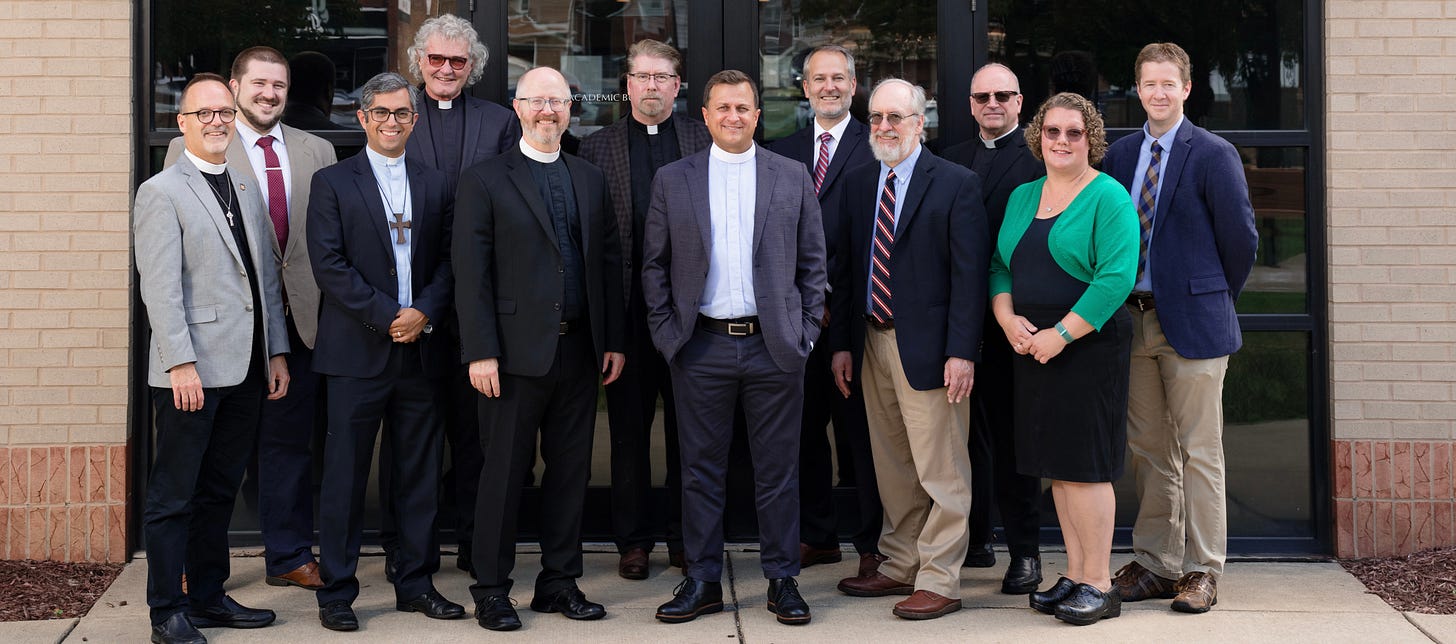
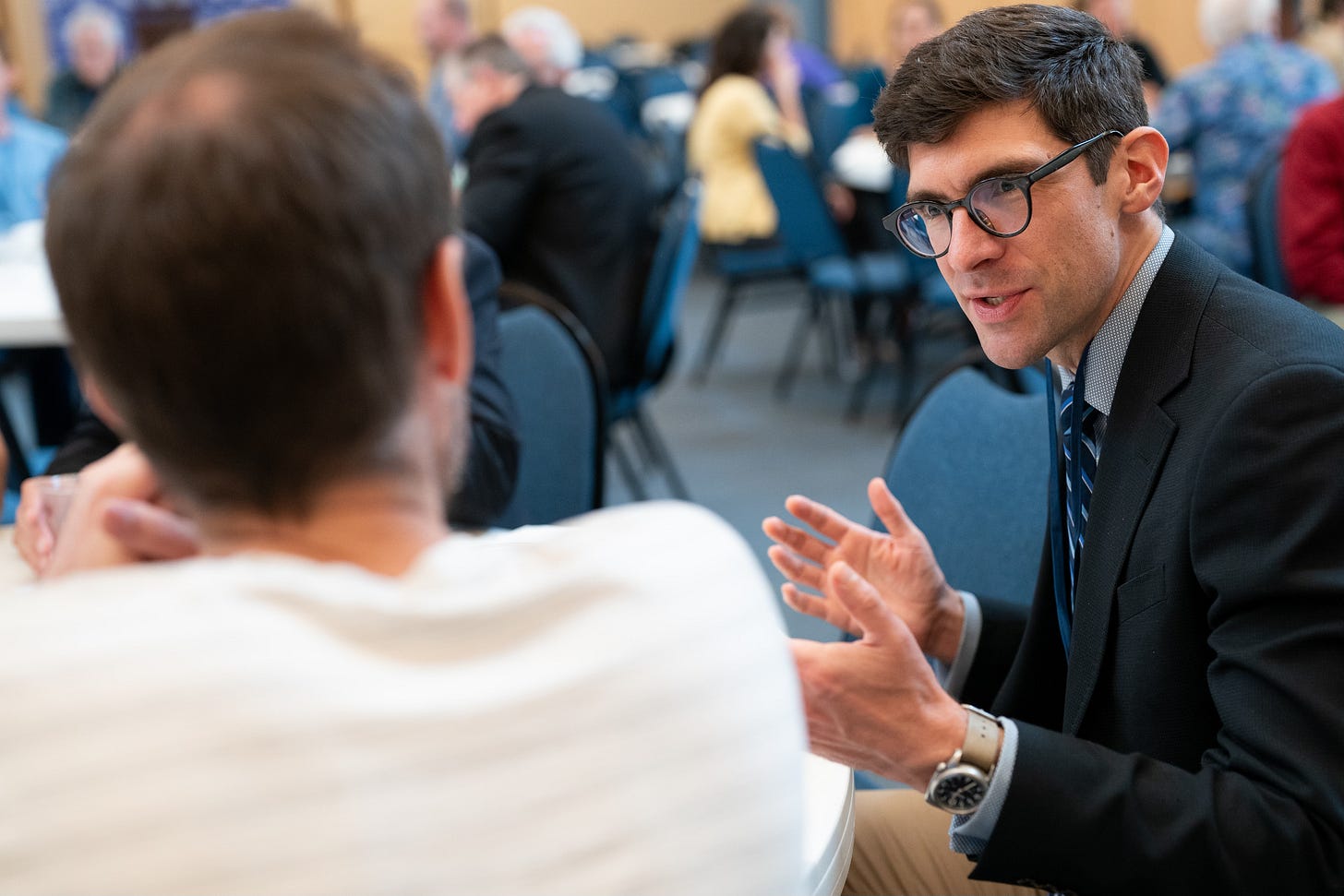
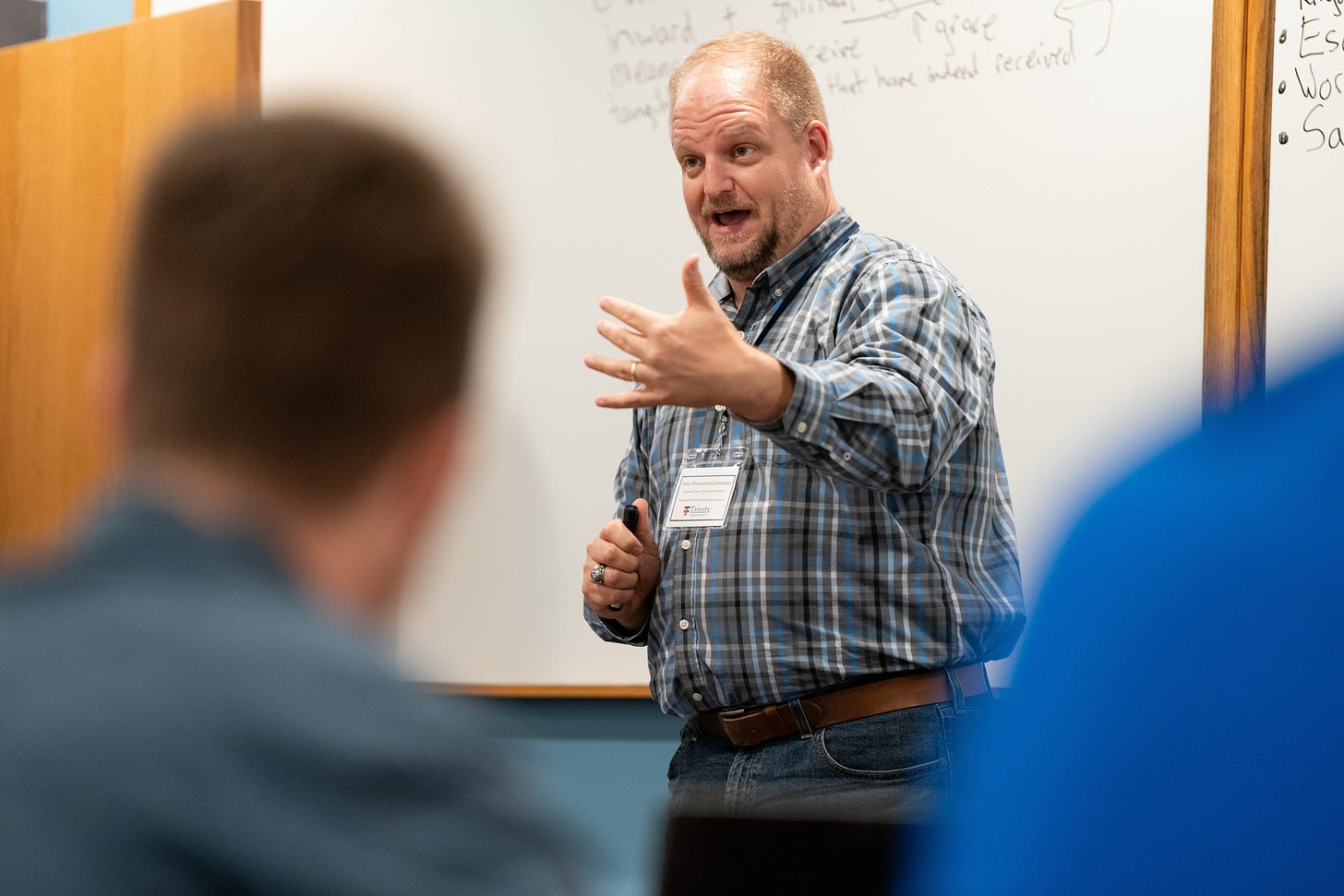
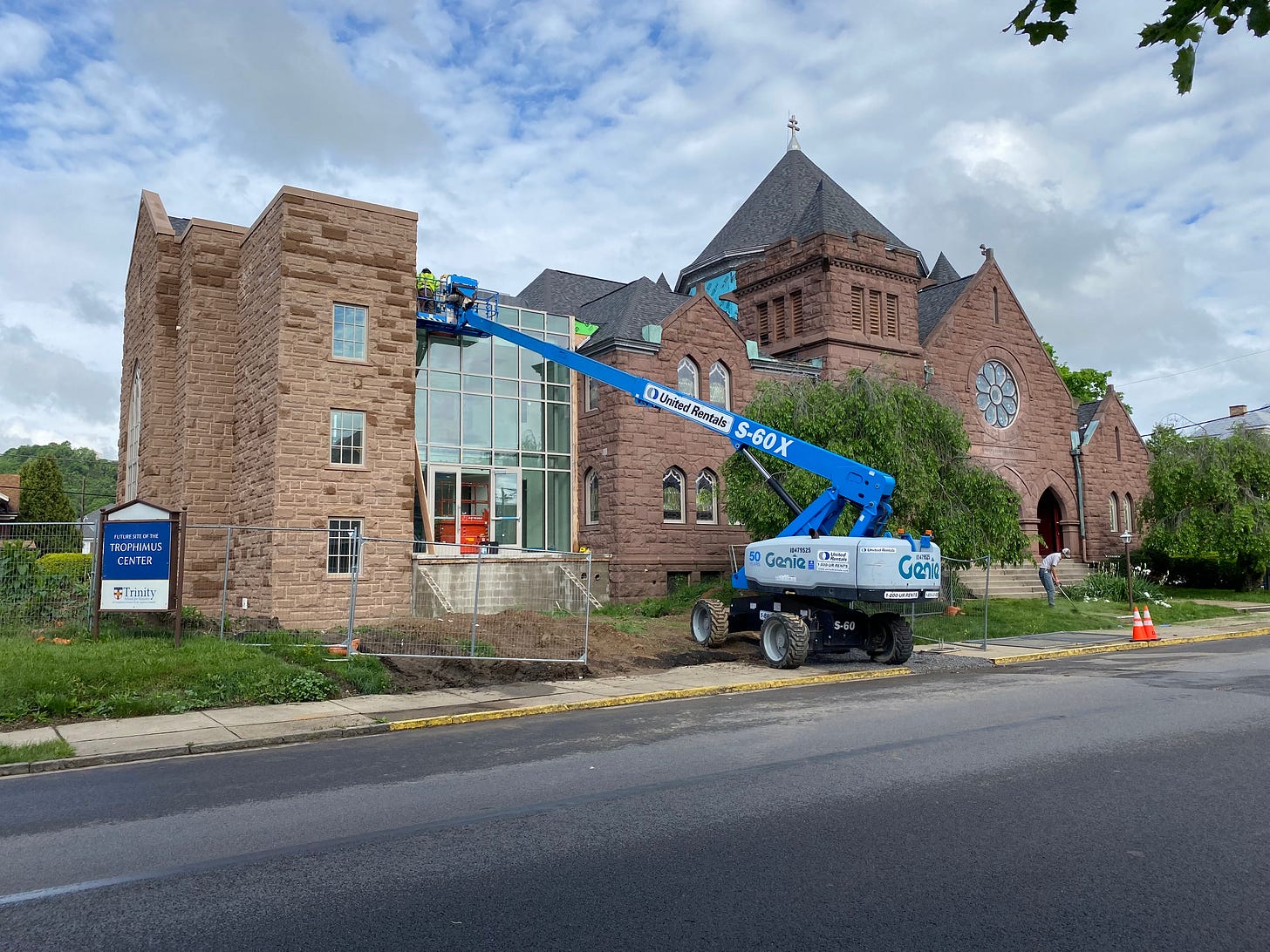
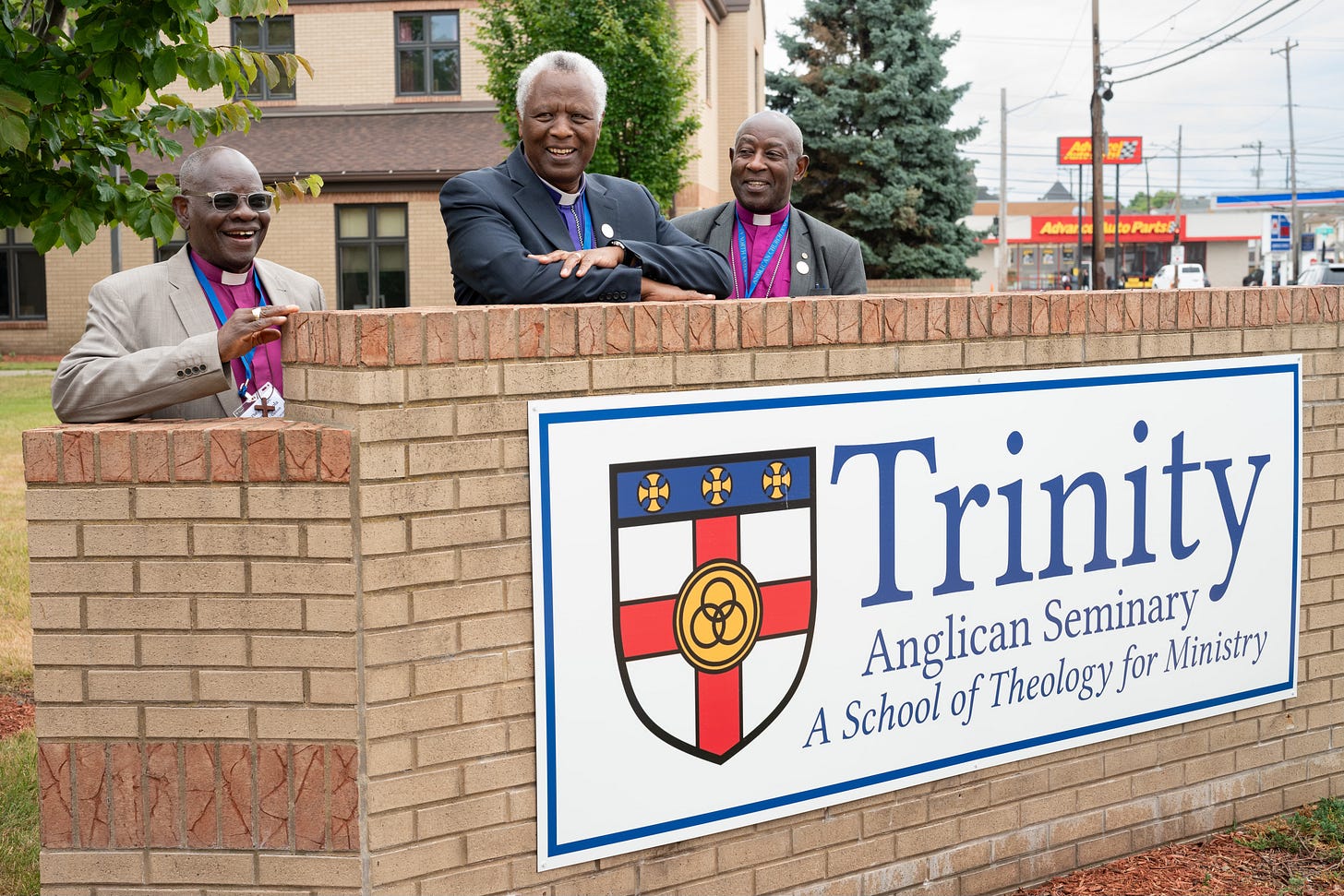
Trinity Anglican Seminary was instrumental in my preparation for my PhD program at Trinity College Dublin. I pray that TAS thrives. I've been blessed through TAS and I will keep up with it's progress.